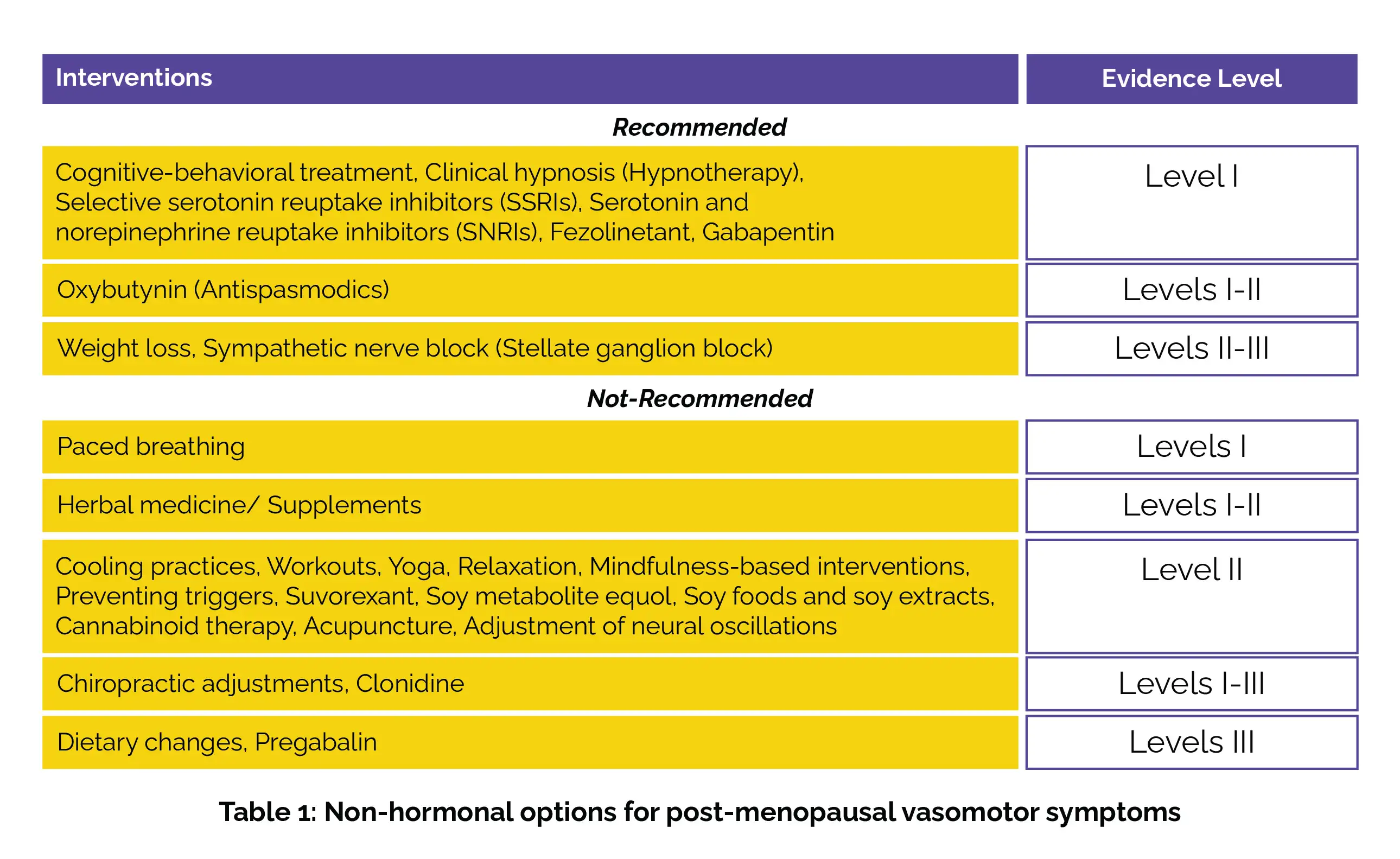Categories
Change Password!
Reset Password!


To revise and assess the evidence-supported approach for managing menopause-associated vasomotor symptoms without hormonal interventions, based on the Position Statement of the North American Menopause Society (NAMS) in the year 2015.
Healthcare professionals need to be well-informed about evidence-supported non-hormonal options for managing vasomotor symptoms (hot flashes and night sweats) in menopausal women ineligible for or not preferring hormone therapy.
To revise and assess the evidence-supported approach for managing menopause-associated vasomotor symptoms without hormonal interventions, based on the Position Statement of the North American Menopause Society (NAMS) in the year 2015.
To assess and analyze the related literature since the 2015 Position Statement, a group of healthcare professionals and research experts specializing in women's health were selected. The topics were primarily allocated into 5 sections: dietary supplements; lifestyle; mind-body practices; medication therapies; and acupuncture, etc.
The advisory group evaluated the latest and accessible literature to decide whether to advise for or against usage, considering three levels of evidence: Level I, supported by strong and consistent scientific evidence; Level II, backed by inadequate or inconsistent scientific evidence, and Level III, consensus and expert opinion.
A thorough examination of the literature based on evidence identified multiple non-hormonal options for addressing vasomotor symptoms, as depicted in Table 1:

For the management of vasomotor symptoms, the use of hormone therapy stands as the most efficient approach in menopausal women within 10 years of their last menstrual cycle. For those ineligible for hormone therapy due to contraindications (such as estrogen-dependent cancers or cardiovascular conditions) or personal preference, healthcare professionals should possess comprehensive knowledge about evidence-backed non-hormonal therapy alternatives for easing vasomotor symptoms (generally known as hot flashes or flushes and night sweats).
Menopause
The 2023 nonhormone therapy position statement of The North American Menopause Society
Chrisandra L. Shufelt et al.
Comments (0)